Liam Donahue
Professor Pinsker
9/23/16
History 204
Charles Himes and William Fisher
Collections Search: The archives assignment relating to the class of 1870 provided a good jumping off point for this assignment. The document I was provided with was a letter to none other than William R. Fisher, a graduate of the class of 1870 that I researched for my previous journal. The letter discussed the death of Charles Francis Himes, an apparent acquaintance of Fisher’s. It turns out that Himes had taught at Dickinson for many years, and had been there while Fisher had taught there from 1874-76. The online archives also listed a series of letters from Himes to Fisher during this period. I was interested in knowing more about Fisher, and about his relationship with Charles Himes, so I went to the archives with the call number of the letters, MC 2000.12, Box1, Folder 3. I was rewarded with a file of seven letters, more than I had expected. Three of them were transcribed. I read all of these letters, successfully transcribing one of them. However, I was unsure of two of the words at the end of the note, so I asked one of the archivists, Malinda Triller Doran, who helped me decipher Himes’ handwriting. The two words are underlined in the transcription. Malinda also helped out by giving me a few tips for transcribing, as well as a field guide to 19th century handwriting.
- Charles Francis Himes, around 1880. Courtesy of the Dickinson Archives Online Encyclopedia.
- William Righter Fisher. Courtesy of the Dickinson Archives Online Encyclopedia.
Document Identification:
This first document is a letter of congratulations to Fisher for being given the post of “Professor of Modern Languages.” This letter is the (apparent) result of a larger crisis that the College was going through at this time.

Letter from Himes to Fisher, informing him of his position as Modern Language Professor. Courtesy of the Dickinson College Archives.
Transcription:
Carlisle, Pa. July 2nd, 1874
W.R. Fisher, Esq.
Bryn Mawr, PA.
My dear Sir,
I have the honor to inform you that you were elected “Professor of Modern Languages” in Dickinson College, at a meeting of the Board of Trustees held June 26th 1874.
yours truly,
Charles F. Himes, Secty. Of Brd. of Trustees of Dick. Cole.
An earlier letter from Himes to Fisher, dated June 5, 1874, and labeled as “Strictly Confidential” shines some light on what was going on at Dickinson in 1874.
- A letter from Himes to Fisher, Labeled “strictly confidential,” discussing an impending change to the faculty. Transcription and original. Courtesy of the Dickinson College Archives.
- Page 1 of the original letter
- Page 2
- Page 3
- Page 4
- Page 5
- Page 6
- William Trickett, Professor of modern languages and Fisher’s predecessor. Courtesy of the Dickinson Archives Online Encyclopedia.
In this letter, Himes speaks of an impending “reorganization of the faculty of the College,” that will be “brought about at the meeting of the Board of Trustees at Commencement[.]” He then goes on to speculate over which positions will be changed, mentioning that he thinks that “the places of Profs. Stayman and Trickett will be otherwise filled.” Trickett, according to his entry in the Dickinson Archives Online Encyclopedia, was the current modern languages professor. But I knew from previous research that Fisher was a professor of modern languages during his time at Dickinson. Himes refers to the apparent period of transition that the college is going through as a “crisis,” yet concedes that these rearrangements are “perhaps the best thing that can be done,” and hopes that it will mark the start of “a new era” for the College. He goes on to talk about how the two hardest chairs to fill will be “the chair of Math…and next to that of modern languages.” Himes states that he has “mentioned [Fisher’s] name to [College President McCauley] and he has been very favourably impressed with it.”
Himes closes by mentioning how President McCauley “seems very desirous…to control a movement, which he did not originate,..to cause as little violence as possible…& he thinks this may best be accomplished quietly.”
This behind-the scenes drama was taking place during the summer of 1874, the year Fisher started teaching at Dickinson. The above letter of congratulations indicates that Fisher was given the position of professor of modern languages. This document, then, shows us one person’s perspective of what was going on at the college the year Fisher started teaching there, and part of how he came to get the position that he did.
However, the drama continued even after Fisher had the position. The next note of Himes’ is dated July 1, 1874.

Letter form Himes to Fisher, discussing the changes made by the Board of Trustees. Courtesy of the Dickinson College Archives.
In this letter, part of which I transcribed, Himes related that “the Board…seemed to be very much in earnest and have reconstructed.” He then stated that apparently “neither [Fisher] nor [Trickett] [were] heedful that [they] were opposing candidates.” Himes also said that Professor Trickett “may feel some gratification in knowing you succeed him.” This may not have been the case, as Himes’ last letter hints.
- Transcription of a letter form Himes to Fisher, discussing possible controversy over the new facluty appointments. Transcription and original both Courtesy of the Dickinson College Archives.
- The original letter
Dated July 27, 1874, it was one of warning, telling Fisher that since Himes believes Professor Trickett to be “under the influence and in full alliance,” (of what is not specified), it is best “to say just as little upon any of the recent events as possible.” This was because, says Himes, if “any charges are made against you,…you will stand all the better for having said nothing that may appear to have been said in your own defense.” Himes also said that “the prospects of the College…have been much improved by the revolution.” It is likely that the “revolution” referenced here is the reorganization of the faculty. This kind of behind the scenes maneuvering is interesting to say the least. How common was it at Dickinson during this time? What about other colleges? Does it still go on today, here or elsewhere? Another avenue of inquiry could be why this restructuring was taking place at all. Did it have to do with the recent civil war? Were the faculty not getting along? Perhaps there are more documents in the archives that can answer these questions.
Further research shed a lot of light onto what was going on at the college during this time. Charles Coleman Sellers’ Dickinson College: A History notes in chapter 11 (entitled “McCauley”) that both McCauley and Himes were motivated by “the need for a faculty of recognized eminence”(Sellers 264). He also says that their planning was carried out “with the secrecy of a coup d’etat”(264). This is evident in the way Himes labelled his letter to Fisher as being “strictly confidential,” yet Selllers tells us that “Fisher had…shown Trickett the ultra-confidential letter”(267). Now Trickett knew what was going on. To further complicate matters, as the July 2nd letter to Fisher shows, it was Fisher himself who got Trickett’s old chair. As to why Trickett was getting the axe in the first place, Sellers reports that during 1873, several of Trickett’s students from the lower three classes had refused to “‘recite in Prof. Trickett’s recitation room'”(266).Clearly, Trickett did not endear himself to the students. Sellers speculates that it was his “standards of promptness and perormance”(266) that the students took issue with.
Curious about further archival sources related to all this, I looked again to the archives. On the archives website, I found an article in the Dickinsonian from October 1874, and went to the archives to see if I could find a hard copy, for the better quality.

An article from October 1874 edition of The Dickinsonian, covering the Trickett/Fisher lawsuit (detail). Courtesy of the Dickinson Archives.

An article in the October 1874 edition of the Dickinsonian, describing the Trickett/Fisher lawsuit. Courtesy of the Dickinson Archives.
I was successful. In an old, badly bound book in the archives I hit pay dirt, finding mention of the crisis in four consecutive Dickinsonian editions from October 1874 to January 1875. This article from the October 1874 Dickinsonian related the news that Professor Trickett was filing a lawsuit against Fisher, “to show by what right [Fisher] occupies his current position.” (As newly appointed Professor of Modern Languages). It lists the claims made by “the realtor,” Professor Trickett, as being that he “was ejected without due notice or being able to defend himself.”
I tracked this lawsuit through three more editions of the Dickinsonian, all found in the archives. The next mention of it was in the November 1874 edition.
This article explains that the case was decided in favor of “the realtor,” Professor Trickett, and that “when the respondent [Fisher] was elected by the trustees, there was…no vacancy.” Things were looking up for Trickett.
In the December edition of the paper, it is reported that the “writ of ouster obtained against Fisher by Trickett will remain unexecuted until Dec. 15,” and that the Board of Trustees would soon be “consider[ing] this complicated affair.” The article goes on to say that they hope that the actions of the Board of Trustees “will subserve the procuring of justice and the removal of tedious difficulties.”
The final mention of the Trickett/Fisher debacle is in the January 1875 edition of The Dickinsonian. It reads with a sense of finality and retrospection.
The author relates that “many bitter words have been uttered against what transpired in June,” declaring finally that “[n]one are more anxious to have peace and harmony reign in college than the students.” Here it is important to note that the authors of each particular article are not listed. According to Sellers, President McCauley’s administration started the Dickinsonian in 1872, and “at the outset the[y]…contain a large infusion of faculty and alumni productions(271). Knowing the perspective that these articles are being written from could tell us more about how people actually felt about this issue. For instance, was the above sentence written by a student who felt he was speaking for the student body at large? Or was it written by an alumnus, an outsider writing about his observations?
The next article in the January edition describes the trial, and that”there might be a settlement of the difficulty,” which resulted, finally, in the resignation of Trickett and the other two professors. Here, mention of the Fisher/Trickett case ends. The crisis had finally been resolved.
Sources
http://archives.dickinson.edu/people/charles-francis-himes-1838-1918
http://archives.dickinson.edu/people/william-righter-fisher-1849-1932
http://archives.dickinson.edu/people/william-trickett-1840-1928
Himes, Charles Francis to Fisher, William Righter, June 5th 1874. MC 2000.12 B1, F3, Letter From Charles Himes to William Fisher, Dickinson College Archives and Special Collections, Carlisle, PA
Himes, Charles Francis to Fisher, William Righter, July 1st 1874. MC 2000.12 B1, F3, Letter From Charles Himes to William Fisher, Dickinson College Archives and Special Collections, Carlisle, PA
Himes, Charles Francis to Fisher, William Righter, July 2nd 1874. MC 2000.12 B1, F3, Letter From Charles Himes to William Fisher, Dickinson College Archives and Special Collections, Carlisle, PA
Himes, Charles Francis to Fisher, William Righter, July 27th 1874. MC 2000.12 B1, F3, Letter From Charles Himes to William Fisher, Dickinson College Archives and Special Collections, Carlisle, PA
Sellers, Coleman Charles, Dickinson College, A History. Dickinson College, Carlisle PA, 1973. Print.
Dickinsonian, 6 October, 1874
Dickinsonian, 3 November, 1874
Dickonsonian, 5 December, 1874
Dickinsonian, 5 January, 1875
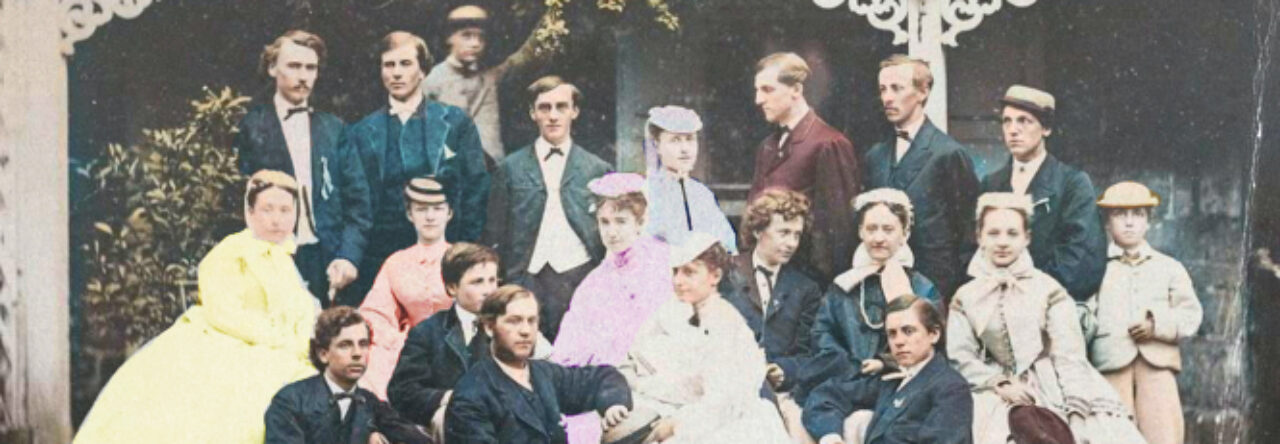
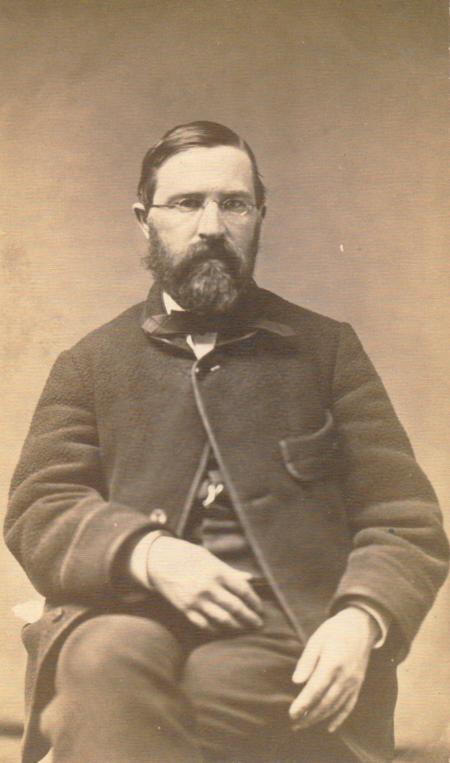
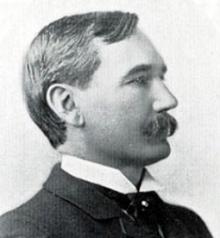
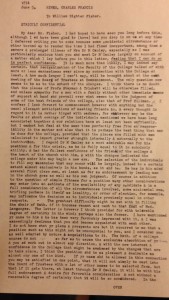
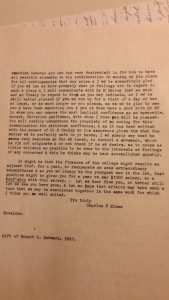
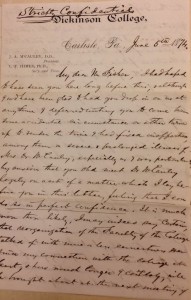
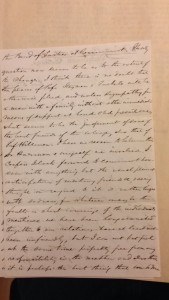
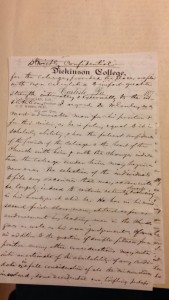
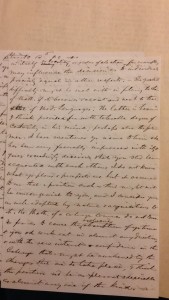
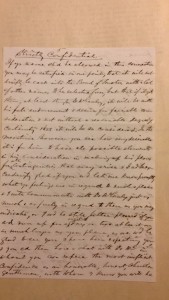
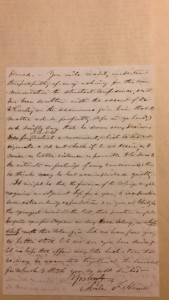
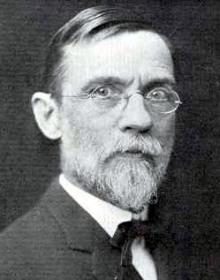
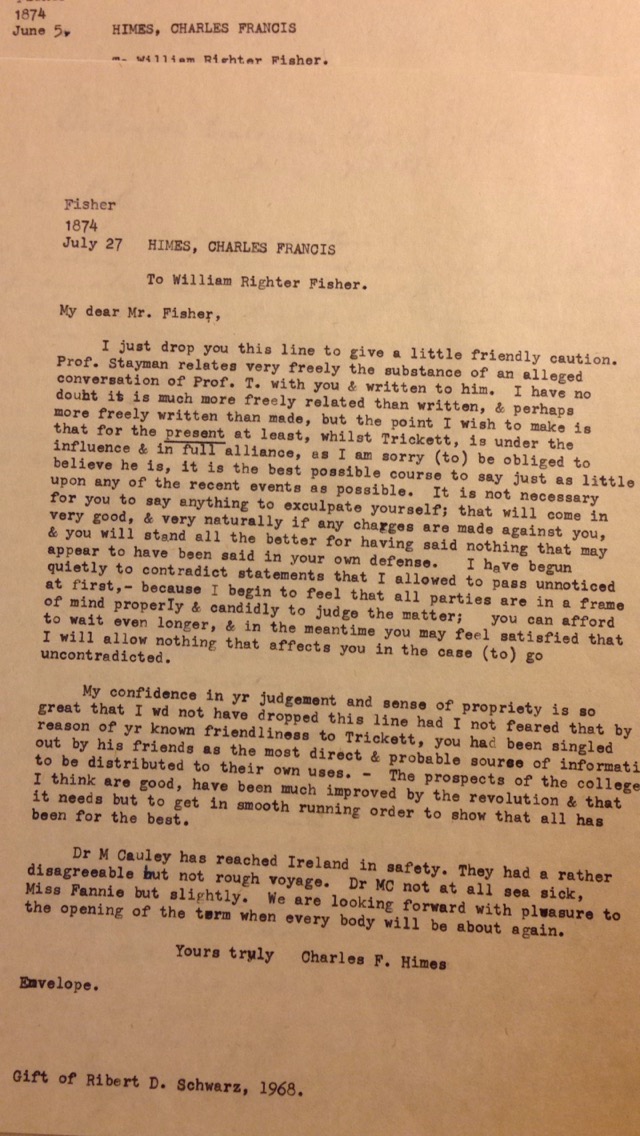
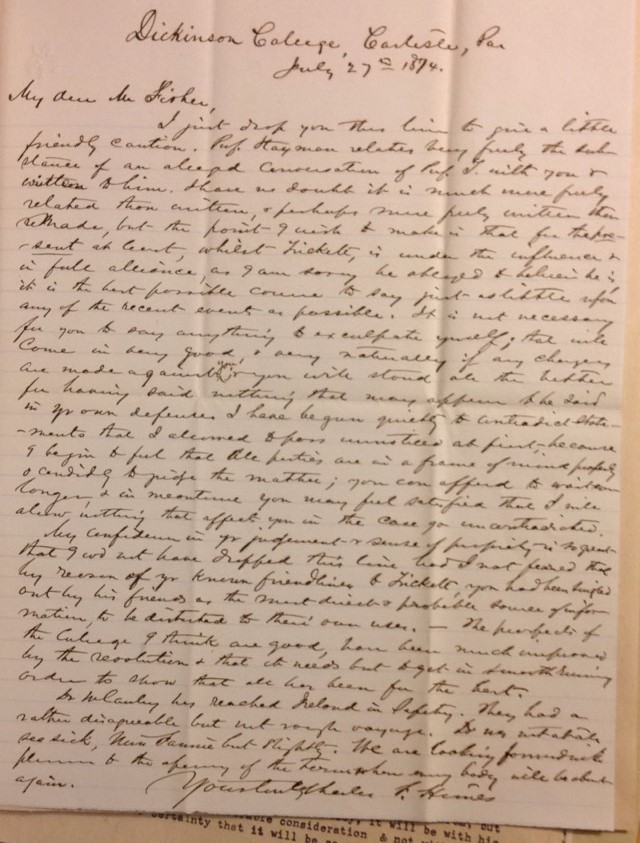



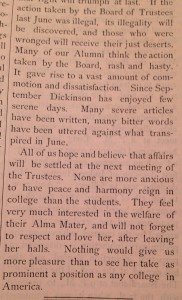


Leave a Reply